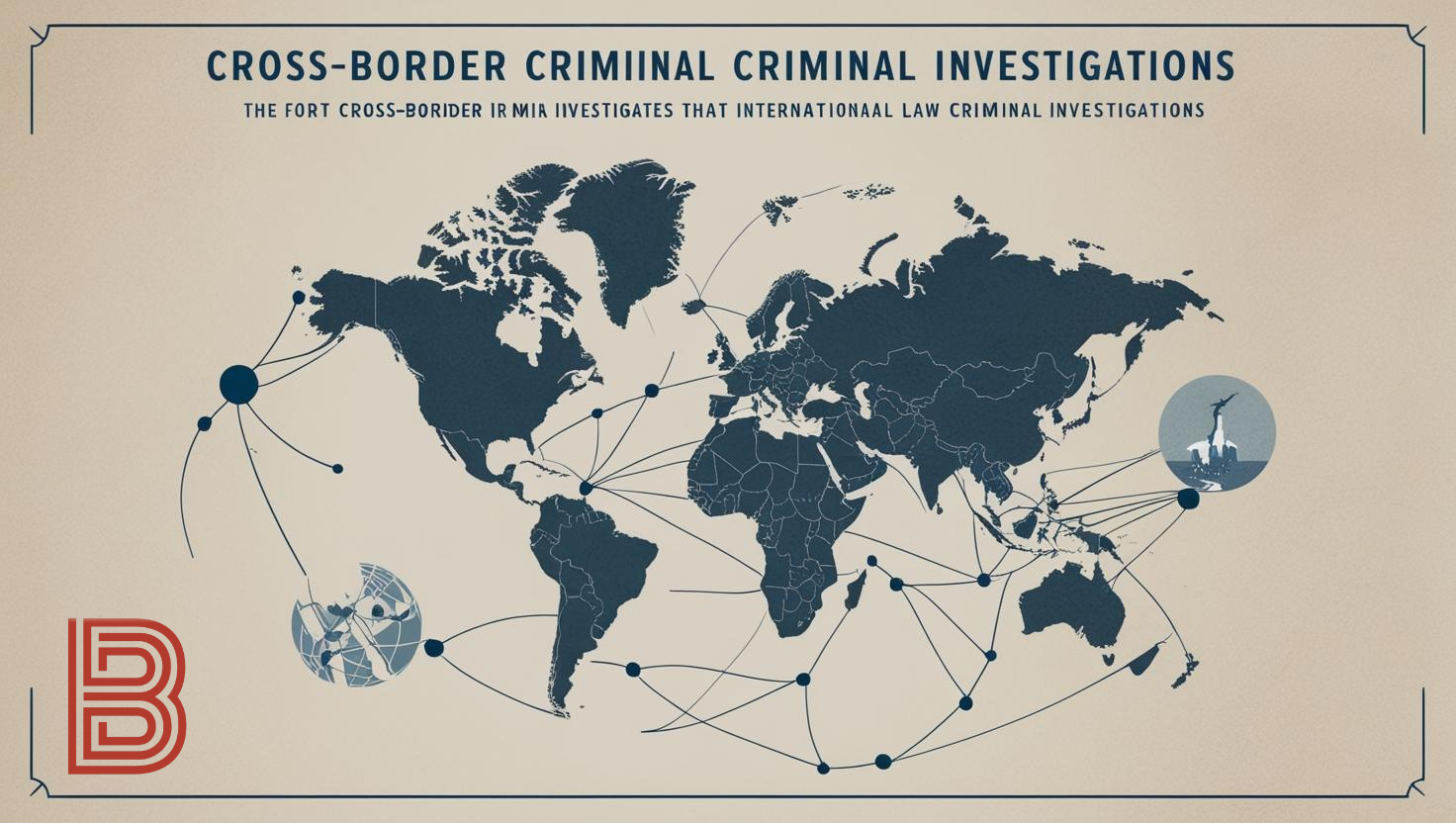
Introduction
The globalization of economies, rapid advancements in technology, and ease of international travel have led to a significant rise in cross-border criminal activities. These crimes, which range from terrorism and drug trafficking to cybercrime and financial fraud, present serious risks to national security, economic stability, and societal well-being. Addressing these threats effectively requires coordinated international efforts through cross-border criminal investigations. Additionally, risk management strategies are essential in mitigating the potential impacts of such crimes on businesses, governments, and individuals. This paper explores the importance of cross-border criminal investigations and their role in mitigating risks associated with transnational crimes.
Understanding Cross-Border Criminal Investigations
Cross-border criminal investigations involve the collaboration of law enforcement agencies, judicial bodies, and intelligence organizations from multiple countries to detect, investigate, and prosecute criminals operating across international boundaries. These investigations are crucial for addressing crimes that transcend national jurisdictions and require extensive cooperation between governments, international organizations, and private-sector entities.
Types of Cross-Border Crimes
Terrorism – Acts of terrorism, such as those carried out by groups like ISIS or Al-Qaeda, often involve networks that span multiple countries. Investigations into these activities require international intelligence-sharing and coordinated law enforcement efforts.
Human Trafficking and Smuggling – Criminal networks exploit vulnerabilities in border security to smuggle people across nations, often for forced labor or exploitation.
Drug Trafficking – Organizations such as cartels operate across multiple countries, necessitating cross-border operations to dismantle supply chains and prosecute offenders.
Cybercrime – With increasing digital connectivity, cybercriminals exploit networks to commit crimes such as identity theft, hacking, and financial fraud across different jurisdictions.
Money Laundering and Financial Crimes – Criminals use sophisticated techniques to launder money through international financial systems, making detection and prosecution difficult without global collaboration.
Importance of Cross-Border Criminal Investigations
1. Enhancing National and Global Security
Cross-border investigations help prevent and disrupt criminal activities that pose threats to national security. Terrorist organizations, for example, rely on international networks for recruitment, financing, and planning attacks. Through coordinated investigations, law enforcement agencies can dismantle these networks and prevent attacks before they occur.
2. Strengthening Legal and Judicial Cooperation
One of the main challenges in prosecuting cross-border crimes is the difference in legal frameworks across countries. Through mutual legal assistance treaties (MLATs) and international law enforcement organizations like INTERPOL and Europol, countries can work together to extradite suspects, share evidence, and prosecute criminals effectively.
3. Improving Intelligence Sharing
Timely and accurate intelligence-sharing is crucial for tracking and preventing transnational crimes. Collaborative investigative efforts allow agencies to share information on criminal suspects, emerging threats, and tactics used by criminal networks, enabling better preparedness and response.
4. Economic Stability and Financial Security
Financial crimes such as money laundering and fraud can destabilize economies. International investigations help track and seize illicit financial flows, thereby protecting financial institutions and ensuring economic stability.
5. Combating Emerging Technological Threats
With the rise of cybercrime, law enforcement agencies need advanced technological capabilities and cooperation with international cybersecurity experts. Coordinated investigations help address challenges posed by encryption, dark web activities, and digital payment frauds.
Challenges in Cross-Border Criminal Investigations
Despite their importance, cross-border investigations face several challenges:
Jurisdictional Conflicts: Countries have different legal systems, which can complicate investigations and prosecutions.
Lack of Coordination: Some nations may be unwilling or unable to collaborate due to political differences or lack of resources.
Data Privacy Laws: Strict data protection regulations can limit the ability of investigators to share crucial information.
Corruption: Some governments or officials may be complicit in criminal activities, hindering international cooperation.
Risk Management Strategies in Mitigating Cross-Border Crimes
Effective risk management is essential to reducing the impact of cross-border crimes on societies and businesses. The following strategies can help mitigate risks associated with transnational crimes:
1. Strengthening International Collaboration
Governments and law enforcement agencies should enhance partnerships through bilateral and multilateral agreements. Platforms such as the Financial Action Task Force (FATF) help set global standards for combating money laundering and terrorist financing.
2. Investing in Technology and Cybersecurity
Given the rise of cybercrime, authorities must invest in state-of-the-art technology for digital forensics, encryption analysis, and real-time data monitoring. Businesses should also implement strong cybersecurity measures to prevent fraud and data breaches.
3. Enhancing Legal Frameworks
Countries should harmonize their legal frameworks to facilitate smoother extradition processes and joint investigations. The establishment of international courts and tribunals can also aid in the prosecution of transnational criminals.
4. Capacity Building and Training
Law enforcement agencies should invest in specialized training programs for officers to equip them with the skills required to handle complex cross-border investigations. This includes training on financial crimes, cyber threats, and international law.
5. Encouraging Public-Private Partnerships
Businesses play a crucial role in identifying and preventing financial crimes. Governments should collaborate with financial institutions, technology firms, and private security firms to enhance detection and reporting mechanisms.
6. Public Awareness and Community Engagement
Raising public awareness about cross-border crimes and their risks can help individuals and businesses take proactive measures. Encouraging whistleblower protection and citizen participation in crime reporting can enhance law enforcement efforts.
Summary
Cross-border criminal investigations are essential in combating transnational crimes that threaten global security and economic stability. Effective collaboration between countries, intelligence-sharing, and risk management strategies are key to mitigating the impact of these crimes. While challenges such as jurisdictional conflicts and technological barriers exist, strengthening international cooperation, legal frameworks, and technological capabilities can significantly improve the effectiveness of cross-border investigations. Governments, businesses, and individuals all have a role to play in ensuring a safer and more secure world.
#innovation #management #technology #creativity #futurism #startups #marketing #socialmedia #socialnetworking #digitalmarketing #law #lawyer




















